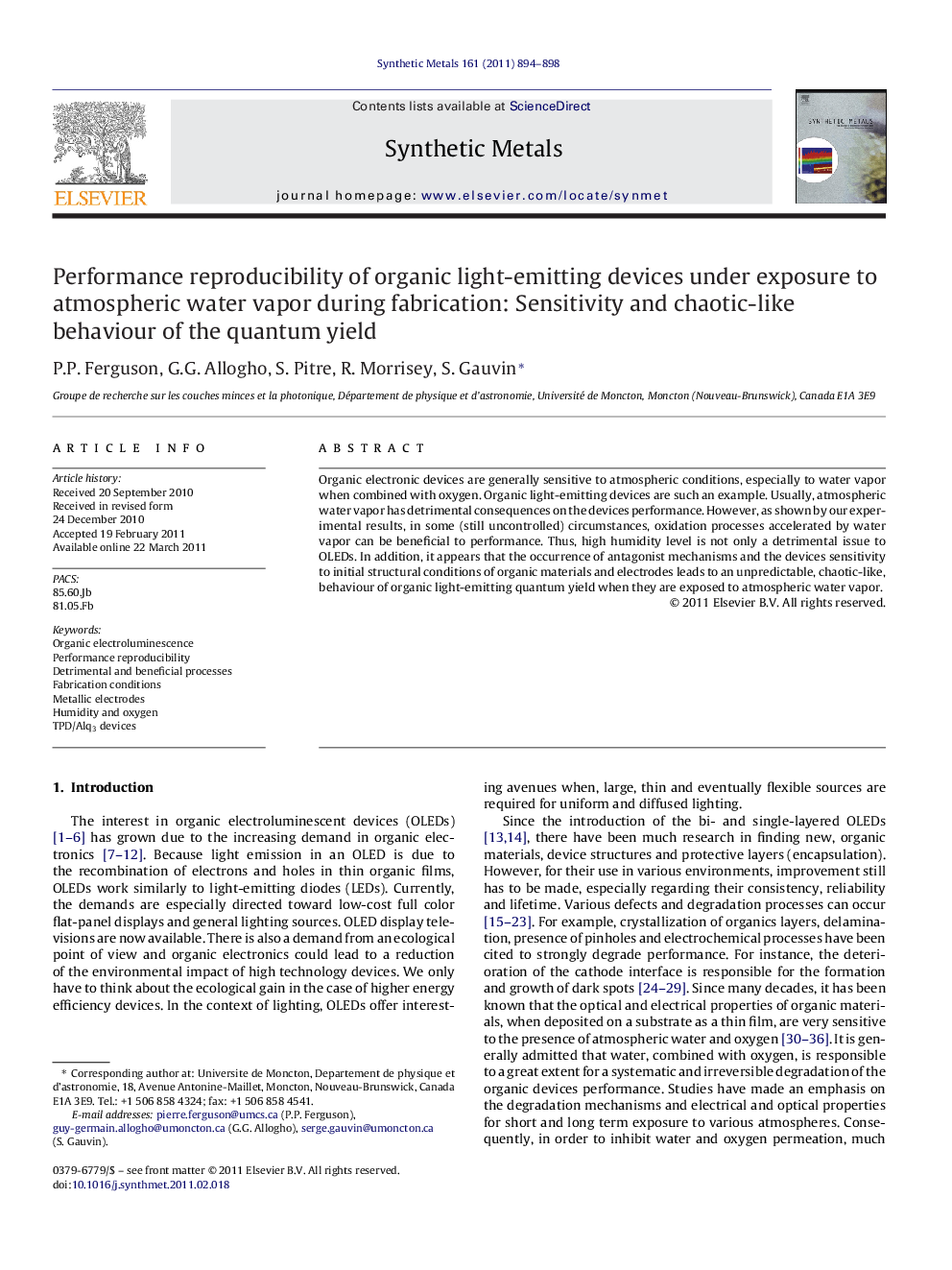| Article ID | Journal | Published Year | Pages | File Type |
|---|---|---|---|---|
| 1442079 | Synthetic Metals | 2011 | 5 Pages |
Organic electronic devices are generally sensitive to atmospheric conditions, especially to water vapor when combined with oxygen. Organic light-emitting devices are such an example. Usually, atmospheric water vapor has detrimental consequences on the devices performance. However, as shown by our experimental results, in some (still uncontrolled) circumstances, oxidation processes accelerated by water vapor can be beneficial to performance. Thus, high humidity level is not only a detrimental issue to OLEDs. In addition, it appears that the occurrence of antagonist mechanisms and the devices sensitivity to initial structural conditions of organic materials and electrodes leads to an unpredictable, chaotic-like, behaviour of organic light-emitting quantum yield when they are exposed to atmospheric water vapor.
